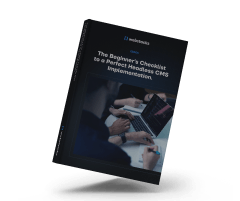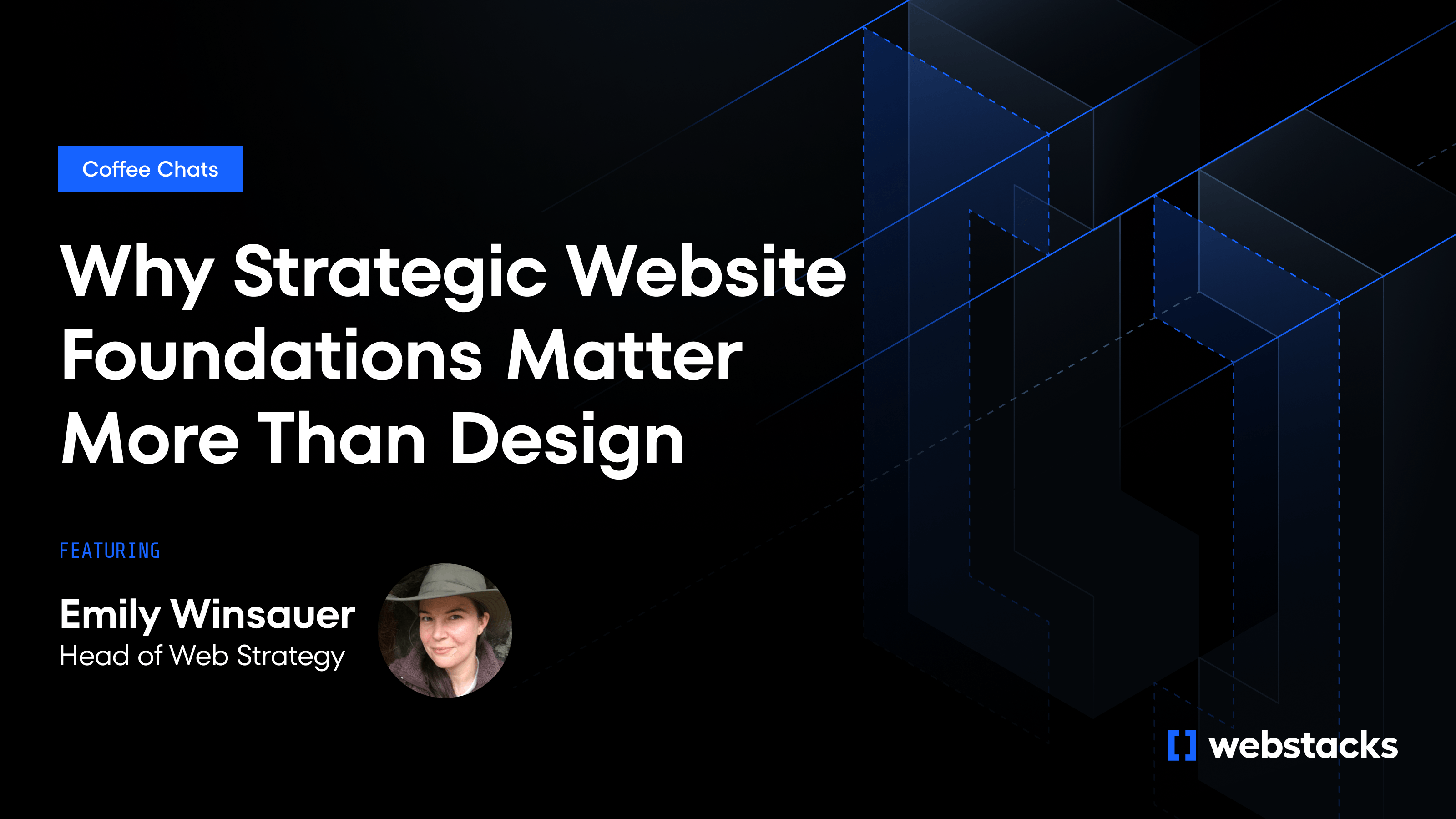Contentful powers over 30,000 developers, marketers, and editors worldwide, making it one of the leading CMS for modern content management.
Businesses using Contentful should also implement the SEO best practices to make most of it - best practices that this article explores.
In brief:
- Features like flexible APIs and customizable content models allow for highly optimized structures.
- Clean URLs, canonical tags, and proper redirects ensure strong search engine performance.
- Tools like hreflang tags help target global audiences with localized content.
- Fast loading times and mobile-friendly designs are critical for user engagement and search rankings.

4 Key Contentful SEO Features for Enterprises
Let's dive into the specific features that make Contentful SEO a game-changer for enterprises. These features not only help you manage your SEO efforts but also ensure that your strategies are efficient and scalable.
1. Structured Content Modeling
Organize your content with SEO-friendly content models. This approach ensures your content is structured in a way that search engines understand, improving your chances of ranking higher in search results. Use descriptive field names and types for semantic clarity. This practice helps search engines and users easily comprehend the content, making it more accessible and relevant. Learn about building a content ecosystem to enhance your structured content modeling.
2. Customizable Metadata Fields
Define custom metadata fields for titles, descriptions, and keywords. This flexibility allows you to tailor each piece of content to meet specific SEO goals. Optimize metadata for each content piece. Well-crafted metadata improves click-through rates and enhances search engine understanding of your content, leading to better rankings.
3. URL Slug Management
Control URL slugs for clean, keyword-rich URLs. Clean URLs are easier for users to read and remember, and they signal to search engines what the page is about. Implement consistent URL structures. Consistency in your URL structure helps search engines crawl your site more efficiently and improves user navigation.
4. Scheduled Publishing and Updating
Schedule content publishing for optimal indexing. Timing your content releases can ensure that search engines index your content promptly, maximizing its visibility. Easily update and refresh content for SEO. Regular updates keep your content relevant and engaging, which can improve its ranking over time. Learn how to future-proof your website with scheduled publishing and updating.
5 Contentful SEO Best Practices
Implementing best practices is crucial for the success of your SEO strategy. These practices not only improve your search rankings but also enhance user experience and engagement.
1. Conduct Keyword Research
Identify target keywords for each content piece. Start by understanding what your audience searches for. Use tools like Google Keyword Planner, Ahrefs, or SEMrush to find relevant keywords. Analyze search volume, competition, and user intent. This helps you choose keywords that can drive traffic and conversions. For more insights, explore SaaS website best practices.
Use keyword research tools and analyze competitors. Look at what keywords your competitors rank for. Identify gaps and opportunities. Tools like Ahrefs and SEMrush can show you competitor keywords and their performance. Use this data to refine your keyword strategy and find areas where you can outperform them.
2. Optimize Content Structure
Use hierarchical heading tags (H1, H2, etc.). Structure your content with clear, hierarchical headings. The H1 tag should represent the main topic of the page. Use H2 tags for subtopics and H3 tags for further subdivisions. This structure helps search engines understand the content hierarchy and improves readability for users.
Implement descriptive and keyword-rich headings. Headings should be descriptive and include target keywords naturally. Avoid keyword stuffing. Instead, focus on making headings informative and relevant. This approach helps both search engines and users quickly grasp the content's main points.
3. Craft Compelling Metadata
Write unique, engaging titles and descriptions. Each page should have a unique title and meta description. Titles should be concise and include the primary keyword. Meta descriptions should summarize the page content and include secondary keywords. Engaging metadata can increase click-through rates from search results. Learn how to level up your blog strategy to craft compelling metadata.
Incorporate target keywords naturally. Keywords should fit seamlessly into titles and descriptions. Avoid forcing keywords into places where they don't belong. Natural keyword placement ensures that metadata reads well and remains relevant to the content.
4. Ensure Mobile-Friendliness
Design responsive content layouts. Ensure your content looks good on all devices. Use responsive design techniques to adjust layouts based on screen size. Mobile-friendly designs improve user experience and can positively impact search rankings.
Optimize images and media for mobile devices. Compress images to reduce load times. Use appropriate formats like WebP for better performance. Ensure videos and other media elements are mobile-friendly. Fast-loading, optimized media enhances user experience and can improve SEO.
5. Implement Structured Data
Add schema markup to content models. Schema markup helps search engines understand your content better. Use schema.org vocabulary to add structured data to your content. This can include information like product details, reviews, and event dates. Structured data can enhance search visibility and provide more context to search engines.
Enable rich snippets and enhanced search visibility. Rich snippets display additional information in search results, like star ratings or product prices. Implementing structured data can enable these rich snippets. Enhanced search visibility can lead to higher click-through rates and more traffic.

How to Measure and Analyze Contentful SEO Performance
To ensure your SEO efforts are paying off, it's essential to measure and analyze your performance. This helps you understand what's working and where there's room for improvement.
Set Up Analytics Tracking
Integrate Contentful with analytics tools to gain insights into how your content performs. Tools like Google Analytics, Adobe Analytics, or other specialized SEO analytics platforms can provide valuable data.
Track key performance metrics such as page views, unique visitors, and average session duration. This data helps you understand which content resonates with your audience and which areas need improvement.
Monitor Keyword Rankings
Use rank tracking tools to monitor the positions of your target keywords in search engine results. Tools like Ahrefs, SEMrush, or Moz can help you track keyword performance over time. Analyze ranking trends to identify opportunities for improvement.
If certain keywords drop in ranking, investigate potential causes such as increased competition or changes in search algorithms. Adjust your content strategy accordingly to maintain or improve your rankings. For more insights, explore B2B competitor analysis.
Evaluate Organic Traffic and Engagement
Measure organic traffic growth over time to gauge the effectiveness of your SEO efforts. Look at metrics like the number of organic visitors, the sources of this traffic, and the pages they visit. Analyze user engagement metrics such as bounce rate, time on page, and pages per session.
A high bounce rate may indicate that visitors are not finding what they expect, while a longer time on page suggests that your content is engaging and valuable. Use these insights to refine your content and improve user experience.
Conduct Regular Content Audits
Assess the quality and relevance of your content through regular audits. Review each piece of content to ensure it aligns with your current SEO strategy and business goals. Identify underperforming content that does not drive traffic or engagement.
Optimize these pieces by updating information, improving readability, or incorporating new keywords. Remove outdated or irrelevant content that no longer serves your audience. Regular content audits help maintain a high standard of quality and relevance across your site.
6 Benefits of Contentful SEO for Enterprises
Contentful and SEO best practices combined can bring multiple benefits to companies.
1. Boosts Organic Search Visibility and Traffic
Using Contentful SEO helps you rank higher in search engine results. This increased visibility means more people find your site when searching for relevant keywords. More traffic leads to more opportunities for conversions and sales. For innovative strategies to increase organic traffic, check out these ways to drive B2B website traffic.
2. Enhances Brand Awareness and Credibility
When your site appears at the top of search results, it builds trust with users. They see your brand as a credible source of information. This enhanced credibility can lead to increased brand recognition and loyalty.
3. Drives Targeted Leads and Conversions
Contentful SEO allows you to target specific keywords relevant to your business. By focusing on these keywords, you attract visitors who are more likely to be interested in your products or services. This targeted approach increases the likelihood of conversions.
4. Improves User Experience and Engagement
Optimized content is easier for users to navigate and understand. This improved user experience keeps visitors on your site longer, reducing bounce rates. Engaged users are more likely to explore your site and take desired actions. Learn more about enterprise website design best practices to enhance user experience.
5. Provides a Competitive Edge in Search Results
By implementing Contentful SEO, you gain an advantage over competitors who may not be as optimized. Higher rankings mean you’re more likely to be chosen over competitors, increasing your market share.
6. Enables Scalable and Efficient Content Optimization
Contentful SEO makes it easier to manage and optimize large volumes of content. You can efficiently update and improve your content, ensuring it remains relevant and effective. This scalability is crucial for growing enterprises looking to maintain high-quality content across their site. Discover efficient content workflows to achieve content at scale.
Contentful SEO Integration and Workflow Tips
Integrating Contentful with SEO tools streamlines your optimization efforts. Tools like Ahrefs, SEMrush, and Moz can connect directly with Contentful, allowing you to monitor keyword performance, track backlinks, and analyze site health without switching platforms. This integration ensures that your SEO data is always up-to-date and easily accessible.
- Establish clear SEO guidelines and best practices for your content teams. Create a comprehensive SEO playbook that outlines the steps for keyword research, metadata creation, content structuring, and mobile optimization. Ensure that every team member understands these guidelines and follows them consistently to maintain a high standard of SEO across all content. Learn more about creating an effective B2B website strategy.
- Implement an SEO review and approval process within Contentful. Before publishing any content, have an SEO specialist review it for keyword usage, metadata accuracy, and overall optimization. This step helps catch any potential SEO issues before they affect your search rankings. Use Contentful's workflow features to manage this review process efficiently.
- Regularly train and educate your teams on Contentful SEO best practices. Conduct workshops and training sessions to keep your team updated on the latest SEO trends and techniques. Provide resources like cheat sheets and video tutorials to reinforce learning. Continuous education ensures that your team stays proficient in SEO and can adapt to changes in search engine algorithms.
- Foster collaboration between content, SEO, and development teams. Encourage regular meetings and open communication channels to ensure everyone is aligned on SEO goals. Developers can implement technical SEO improvements, while content creators focus on producing high-quality, optimized content. This collaborative approach ensures that all aspects of your website contribute to better search performance.
Our Take on Contentful SEO
Contentful's adaptability makes it an excellent choice for modern SEO strategies. Its structured content model enables teams to create reusable, scalable designs that prioritize both performance and user experience. Unlike traditional CMS platforms, Contentful excels at balancing flexibility with functionality, giving businesses the ability to tailor their SEO approach to specific goals.
Features like multilingual support and technical SEO tools integrate seamlessly, allowing for global reach and enhanced discoverability. The challenge lies in aligning these tools with an overarching strategy, ensuring that both technical elements and content deliver maximum impact. Thoughtful implementation can unlock the platform’s full potential.

Conclusion on Contentful SEO
Implementing Contentful SEO requires effort and resources. You need to allocate time and personnel to optimize your content, set up the necessary tools, and continuously monitor performance. However, the investment pays off in the long run.
The long-term benefits of increased organic visibility and traffic are significant. With optimized content, your site ranks higher in search results, attracting more visitors. This boost in traffic can lead to more leads, conversions, and ultimately, revenue.
Contentful SEO helps enterprises establish a strong online presence and compete effectively in search results. When your content appears at the top of search results, it enhances your brand's credibility and authority. This visibility makes it easier for potential customers to find and trust your business.
See the Webstacks difference: Schedule a brief discovery call today. Discover how we can transform your website into a high-performance, scalable digital solution tailored to your needs. Visit Webstacks to get started.
Contentful SEO FAQs
1. Is headless CMS good for SEO? Yes, headless CMS is good for SEO as it allows for greater flexibility in content modeling, faster load times, and better user experiences, all of which contribute to improved search engine rankings.
2. What is Contentful used for? Contentful is used as a headless CMS to manage and deliver content across various platforms. It allows businesses to create, edit, and organize content, optimize it for SEO, and ensure seamless content delivery through APIs.




